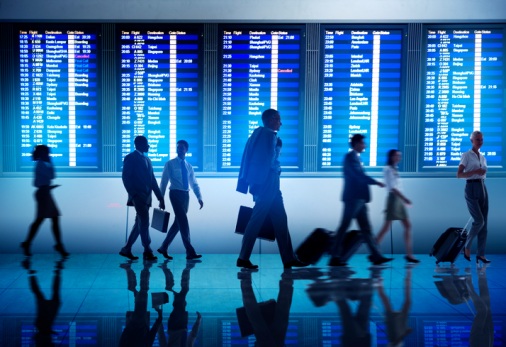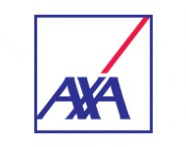Political risks global travellers should be aware of

Authored by AXA XL Political Risk, Credit & Bond Underwriting Manager Lian Phua
The next time your travels find you in a foreign country, look around. Chances are you will find clues to that country’s political and credit risks.
Because I am an underwriter of political risk and credit insurance, I constantly analyze macroeconomic trends and data sets of countries where investors and financial institutions are considering doing business. A complete picture of a country’s risk profile requires a deep dive into many areas, but almost any traveler can get a general idea just by observing local activity.
Here are two examples of places where appearances and reality can be quite different:
Tulum, Mexico. A cultivated beachfront community has become a popular destination for ecotourists, many of whom flock to Tulum’s eco-friendly hotels, take yoga classes on the beach and indulge in fresh-pressed green juice and avocado toast. In some ways, a visitor to this trendy resort city might think he or she is in New York City’s West Village neighborhood rather than Mexico’s Yucatan Peninsula.
A closer look, however, reveals a troubling irony: many of Tulum’s hotels run on diesel generators to provide electricity and air conditioning, and sanitation is poor. Some hotels dump sewage directly into Tulum’s waters, and a once-pristine jungle now has a growing landfill. These are signs of underinvestment in basic infrastructure and may indicate larger problems. Confiscation of property is a classic political risk, and that exists in Tulum, too. A few years ago, several hotel owners were evicted by police officers after a local judge ruled the land that previously belonged to farmers and now is much more valuable, could be confiscated. The combination of murky property laws and inconsistent enforcement at the local and national levels increases a country’s political risk profile.
Uzbekistan. During Medieval times, this former Soviet republic thrived as one of the most strategically important locations in Central Asia along the Silk Road trade route. Today, Uzbekistan is a relatively poor country, with GDP of about $1,500 per capita, according to the World Bank. Its government has long been inwardly focused, implemented currency controls and discouraged foreign direct investment. Its economy is dominated by state-owned enterprises, which has stunted private-sector growth. Uzbekistan is implementing reforms to modernize its economy and attract both investors and tourists. Despite having infrastructure that seems stuck in the past, Uzbekistan is turning to modern tactic to promote tourism such as reaching out to Internet influencers to promote itself as a tourist destination. For example, its Ministry of Tourism invited a food blogger with a large following to sample the country’s cuisines and comment on his visit.
The nation has a lot of potential for growth and advancement as it is starting from a low base. The lack of development in all areas of the country increases the perceived risks in Uzbekistan. However, where there are risks there are also opportunities for investors and lenders to help transform and modernize the former trading center along the Silk Road.
Risks travelers can see
Even an untrained eye can spot basic signs of political risk. Consider what a traveler might see in an emerging market on his or her journey in a taxi from the airport to a hotel. Little things on the ground can tell a lot. For example:
Is the airport large enough to handle the volume of travelers?
Main roads may be under construction or newly built. For new roads, does the surface support large trucks and buses or do potholes appear quickly? Poor-quality roads can point to lack of adequate investment in infrastructure
A taxi driver might complain casually about the high cost of fuel. Is this a result of the government ending fuel subsidies and, if so, why?
A trained eye can catch a glance at the economic and political risk environment in a country just from observing what’s happening outside the window of the taxi from the airport to the hotel.
If the roads look to be in poor shape or too narrow for the number of vehicles on the road, that could indicate an inability of the government to finance the maintenance and development of critical road networks which are essential to the promotion of economic growth. It may also indicate an inability to attract foreign investment to bridge the infrastructure financing gap as a result of political instability or a failed economic policy regime.
Take ongoing protests in Chile for example, which began with an increase in public transportation costs. Ending fuel subsidies is usually part of a government’s broader economic reform but it often triggers anger and protests if government fiscal austerity isn’t complemented by the same government addressing the increase in cost of living or income inequality. These and other on-the-ground facts could indicate the country is struggling to be fiscally responsible, or it may have trade issues and trouble financing infrastructure.
Once a traveler reaches his or her hotel, another sign of larger trouble is Internet access, which many travelers have come to rely on when staying at a beautiful, yet rustic hotel in a frontier country. A lack of Internet connectivity or slow network speeds in emerging markets may suggest underdeveloped telecommunications infrastructure, particularly in base stations. The question it raises is why? Are operating licenses granted to carriers who have the resources to drive infrastructure development and increased bandwidth? Are the appropriate laws and regulations in place to encourage and support such investment? Again, foreign capital and technical expertise is necessary for many emerging market governments to modernize their telecommunications sector- this requires the government to be investor friendly. A World Bank analysis in 2016 found a strong link between the Internet and economic growth. The analysis estimated that, for every 10% increase in broadband adoption, developing countries can increase their GDP by 1.38%, while developed countries can grow their GDP by 1.21%.
A trained eye can catch a glance at the economic and political risk environment in a country just from observing what’s happening outside the window of the taxi from the airport to the hotel.
How insurance can help
Political risk and credit insurance are important tools that facilitate foreign direct investment and global trade. The main exposures that political risk coverage addresses include:
Confiscation and expropriation. Sometimes government actions cause direct financial losses to foreign investors as well as local property owners, such as the hotels in Tulum, Mexico. In some cases, governments seize assets owned by foreign or local entities. Other political risks include nationalization, forced abandonment or forced divestiture.
Currency inconvertibility and exchange transfer. When a country makes a sudden shift in its monetary policy, foreign businesses may be unable to repatriate revenue or exchange funds from local currencies. This is a costly problem and can force a company to halt its business plans.
Political violence. Headlines and social media footage signal how protests, riots, terrorism, war and other events can create losses for foreign businesses. Instability can make it impossible for businesses to stay open in areas where violence is occurring.
By the way, all three kinds of political risk exposures can exist simultaneously. This is not uncommon in situations such as a coup or war, which may be accompanied by unilateral government actions against foreign businesses.
Credit insurance is mainly to protect against non-payment of obligations. It generally covers two situations:
Contract frustration. This coverage is triggered by a default of a payment due under a loan or contract for the sale of goods or services by public sector parties.
Credit Insurance. This coverage is triggered by a default of a payment due under a loan or contract for the sale of goods or serves by private sector parties.
For example, a sovereign state may enter a contract with a foreign consulting firm or contractor on a multiyear economic development project. Credit insurance can provide protection for the high risk of non-payment due to changes in political leadership.
Political unrest and credit risk headlines are in the news every day, adding to businesses’ global risk management concerns. AXA XL’s highly experienced underwriting and analytical team helps businesses manage the complex and ever-changing risks of a global marketplace. We design special risk mitigation solutions that help enterprises to trade and invest with greater confidence and certainty. In collaboration with brokers, we offer clients a wide range of coverage to help manage their global risks.
About AXA XL
AXA XL is the P&C and specialty risk division of AXA which provides property, casualty, professional and speciality products to industrial, commercial and professional firms, insurance companies and other enterprises, here in the UK and throughout the world. With underwriting teams based in the US, UK, EMEA and Asia Pacific regions, we can make decisions close to the markets you serve and work with you to tailor cover to your business needs.
We help businesses adapt and thrive amidst change. Rather than just paying covered claims when things go wrong, we go beyond protection into prevention so your business can go beyond the unexpected.

